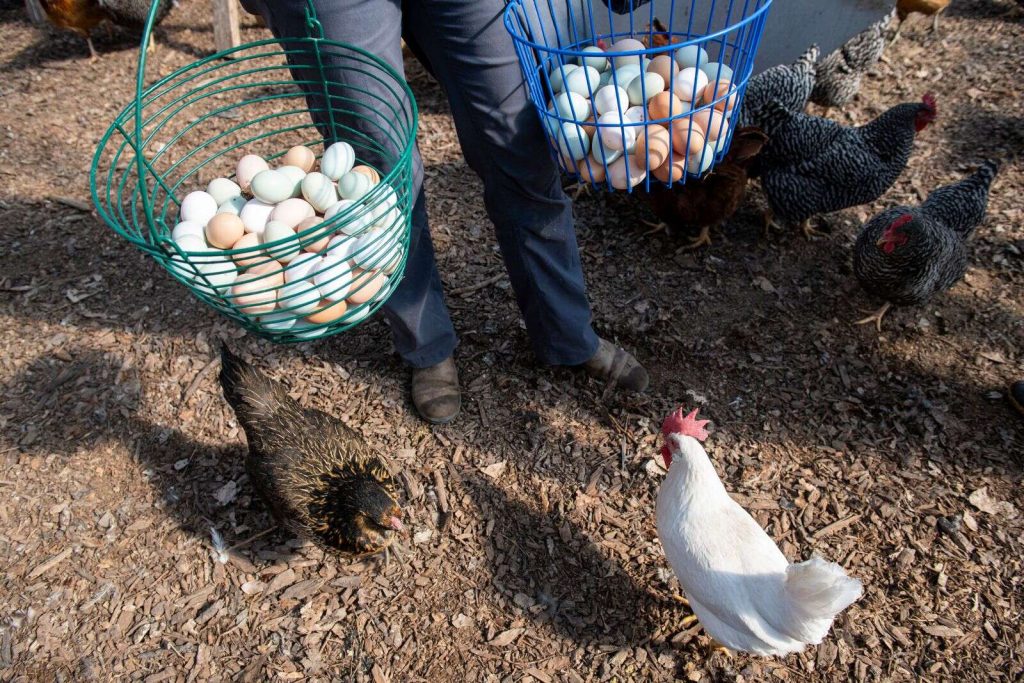Local nonprofits still fighting to combat food insecurity after SNAP pause end

Kelsey Brunner/The Aspen Times archives
With federal food aid returning to recipients after the longest government shutdown in American history came to a close on Nov. 12, Roaring Fork Valley nonprofits are still doing their part to help those in need.
“Yes, SNAP benefits are coming back, but there continues to be food insecurity in the region,” Aspen Community Foundation President and CEO Erica Snow said of the return of the Supplemental Nutrition Assistance Program (food stamps) funds.
She credits this need to the increasing cost of living in the region. According to data presented by the Pitkin County Planning and Zoning Commission in February, the average cost of a single family home increased by 183% between 2018 and 2024, to a mean value of $13.3 million.
The salary required to make an adequate living for a family of four increased by 192% from $50,752 to $148.512 over the past 25 years, while the actual median salary for the same demographic increased by only 78% from $62,190 to $111,291.
Snow said the rising cost of living forces some families to choose between putting a roof over their head and paying for groceries, allowing food insecurity to persist — a reason people should continue to help provide food to those in need despite the end to the SNAP pause.
“It’s a basic need — if people don’t have food, you can’t eat, you can’t function,” she said, adding “In the hierarchy of needs, that’s fundamental.”
Since late October when the SNAP pause was first announced, the Aspen Community Foundation, which serves as a bridge between the philanthropic community and the nonprofit sector, received $435,000 in donations to help fight food insecurity.
Snow said this was the largest call to action the organization saw since the COVID-19 pandemic. But unlike the pandemic, the SNAP pause was the result of government cuts, so there were no opportunities for private partnerships with federal entities.
“What’s different today is you have the government cuts, so you don’t have that public support,” she said.
However, local governments helped fund food assistance programs during the federal funding fallout.
The Aspen Community Foundation partnered with several local food assistance organizations to distribute the philanthropic funding, including Food Bank of the Rockies, Harvest for Hunger, LIFT-UP, and SANA Food for All, which helps those in the Latino community with food assistance.
The funding was also distributed to school resource centers at the local school districts, such as Aspen Family Connections and the Family Resource Center of the Roaring Fork Schools, along with various farming entities, like the Farm Collaborative and Highwater Farms.
Other organizations stepped up as well to help during the SNAP pause. The Aspen to Parachute region hosted over 40 food drives, along with other food assistance efforts.
Basalt’s Rock Bottom Ranch, which serves as the Aspen Center for Environmental Studies’ mid-valley education hub, has donated 280 pounds of potatoes since Oct. 30 to Garfield County’s Women, Infants, and Children (WIC) program, which connects those in need with food assistance. It also sent cabbage and beets to the Farm Collaborative in Pitkin County.
The ranch is striving to sell 100 chickens to LIFT-UP at 50% of market price, or free, if they can get donations to cover some of the cost — an effort that arose in the wake of the SNAP pause, according to John Middleton, Rock Bottom Ranch director.
“We’re not fundamentally a food sovereignty or social justice organization, so try not to blur those lines necessarily,” Middleton said. “But I do believe that we have a position to be able to step up and help with some of these issues.”
Annually, the ranch has a contract to sell about 60 dozen eggs per week to LIFT-UP for eight or nine months of the year, he said.
The ranch is also offering a laying hen pickup event from 9 a.m. to noon on Dec. 19 and 20, where community members are invited to pick up retiring egg-laying hens for free. The ranch will strive to give away 100 hens, which at three years old still make good backyard laying hens or can be processed for stews.
With the efforts from local organizations to combat food insecurity, Snow emphasized that, with the cost of living, the work is not over.
“As long as … we’re seeing costs rise, some families are going to continue to feel strained,” she said.
Donations to battle food insecurity can be made to the Aspen Community Foundation at aspencommunityfoundation.org.
Original reporting from The Aspen Times
Paula Poundstone: Wit at the Wheeler with acclaimed comedian
Stand-up comedian Paula Poundstone will perform from 7 to 8:30 p.m. Saturday, Nov. 29, at the Wheeler Opera House, and the tickets are going fast.

Support Local Journalism

Support Local Journalism
Readers around Glenwood Springs and Garfield County make the Post Independent’s work possible. Your financial contribution supports our efforts to deliver quality, locally relevant journalism.
Now more than ever, your support is critical to help us keep our community informed about the evolving coronavirus pandemic and the impact it is having locally. Every contribution, however large or small, will make a difference.
Each donation will be used exclusively for the development and creation of increased news coverage.










